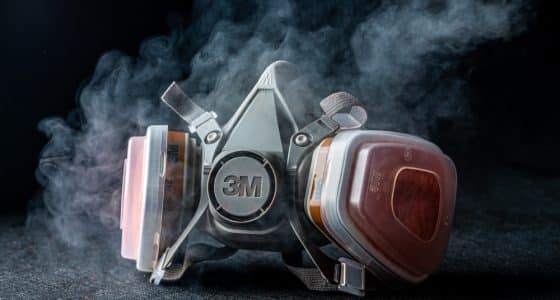In 2019, Larry Roemmich was diagnosed with malignant mesothelioma, the rare form of cancer caused by exposure to asbestos. Roeemmich had spent twenty-seven years working at Puget Sound Naval Shipyard (PSNS) as an insulator. Over eight of those years he wore a protective mask manufactured and sold by 3M Company. Roemmich and his wife named 3M as a defendant in their mesothelioma lawsuit, pointing to failures of the mask as contributing to his illness. Though a jury sided with 3M, the couple appealed that decision based on mistakes they felt were made by the court. The Court of Appeals of Washington agreed, and the case will be reheard.

Proximate Cause at Issue in Mesothelioma Decision
In their original mesothelioma lawsuit, the Roemmiches presented the jury with evidence that he had been exposed to asbestos while working at the shipyard, and that the 3M 8710 mask his employer had provided was not adequately designed and that the company had not provided adequate warnings of is potential failures. They showed that PSNS had relied on approval of the mask by the Bureau of Mines, and that the National Institute for Occupational Health (NIOSH) had warned 3M that the mask tended to leak.
Despite NIOSH warning that the masks risked asbestos exposure and mesothelioma, 3M continued promoting and selling the mask as protective against asbestos through 1986, several years beyond the years that Mr. Roemmich had been using it. The couple accused 3M of product liability and negligence and the company defended itself by arguing that PSNS’s negligence in having provided the faulty masks was a superseding cause.
Instructions to Jury in Mesothelioma Case Deemed Improper
The Roemmiches lost their mesothelioma lawsuit against 3M despite having argued that 3M had not proven that PSNS had known that the masks were not sufficient. They appealed the jury’s decision, pointing to errors in the way that proximate and superceding causation was explained. In its review of the case the appeals court agreed with the couple.
In its ruling, the judges wrote, “We agree that the trial court gave an erroneous proximate cause instruction when it combined the “but-for” causation standard with the substantial factor standard. And we agree that the court erred in giving the superseding cause instruction. Both errors prejudiced the Roemmiches with respect to their negligence claim.” The case will be reheard.
If you or someone you love has been diagnosed with malignant mesothelioma, it is important that you have experienced, knowledgeable people working on your behalf. To learn how the Patient Advocates at Mesothelioma.net can help, contact us today at 1-800-692-8608.
